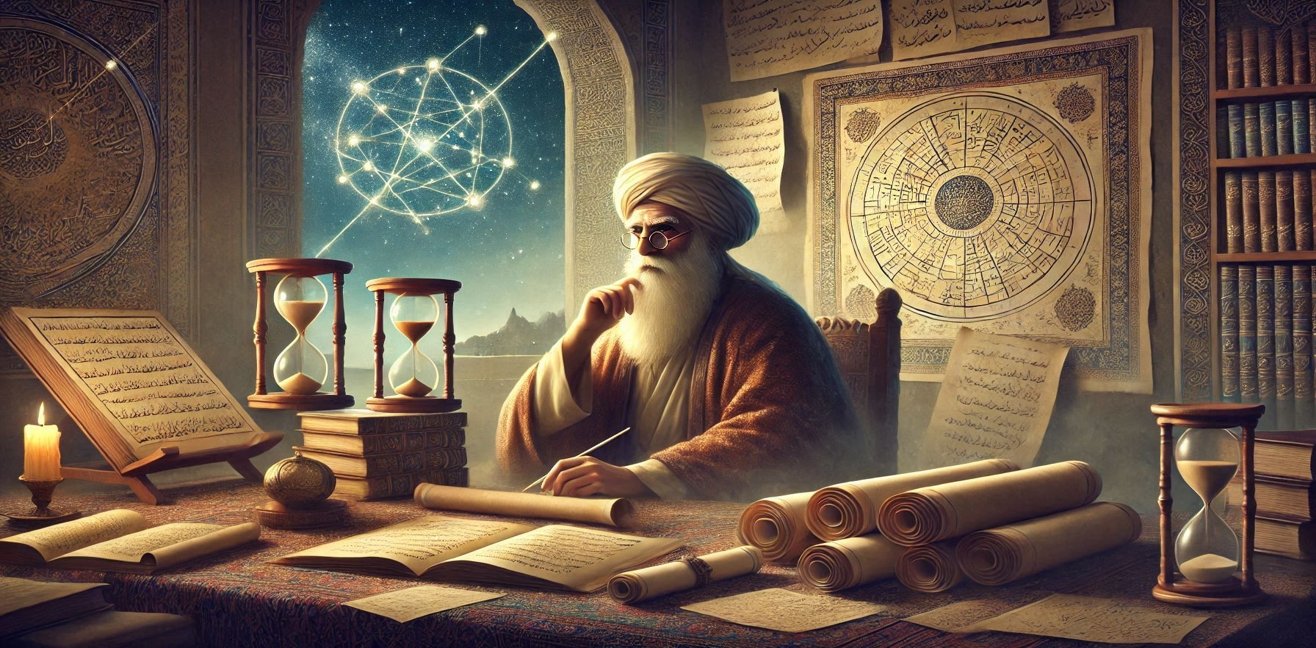Omar Khayyam (1048-1131) was a multifaceted Persian poet, mathematician, astronomer, and philosopher. His full name was Giyaseddin Abu’l-Fath Omar Ibn Ibrahim al-Khayyam. Khayyam is best known for his Rubaiyat (quatrains), which have earned him a significant place in world literature. Both his scientific works and literary contributions have made him a celebrated and enduring figure throughout the centuries.
The Life of Omar Khayyam
Born in Nishapur, Khayyam showed an early interest in mathematics and astronomy. He received an education in religious schools and conducted research in one of the era’s key scientific centers, Bukhara. Under the patronage of Seljuk rulers, Khayyam conducted significant scientific work and was considered one of the brightest minds in the Islamic world.
Scientific Contributions
Khayyam is particularly known for his contributions to mathematics. His work on algebra became famous in Europe and holds an important place in the history of mathematics. Khayyam classified the solutions of cubic equations and developed geometric solutions for cubic equations. Additionally, in 1079, he led the team that created the Jalali Calendar, which includes more precise calculations than modern calendars.
Literary Works: Rubaiyat
Khayyam’s Rubaiyat are short but profound quatrains that deal with universal themes such as the meaning of life, love, death, the fleeting nature of time, and existential questions. His Rubaiyat deeply affect readers with their simple language and intense emotional content. Khayyam, in a direct and clear style, questions the transient nature of life and the place of humans in this world.
An example of one of his Rubaiyat:
As days flow by like water, Every moment a part of us fades, fading away, Don’t worry, live life to the fullest, my friend, For what’s gone never returns again.
Philosophical Views
Khayyam’s philosophical views challenge the dogmatic thinking of his time, advocating for individual freedom, rationality, and critical thinking. His Rubaiyat sometimes questioned mystical and religious topics, while at other times emphasized the pleasures of life. For this reason, he was criticized in some circles, but over time, his profound thoughts were widely accepted.
Omar Khayyam’s Legacy
Omar Khayyam influenced not only his own era but also the centuries that followed. His scientific work, especially his contributions to mathematics, is considered an important step toward modern science. His Rubaiyat have earned a unique place in world literature, been translated into numerous languages, and inspired many literary works.
Conclusion
Omar Khayyam, with his multifaceted genius and profound thoughts, is one of history’s unforgettable figures. His scientific and literary works continue to be admired and respected today. Khayyam’s life and works not only open the doors to the past but also to the future.
To understand this great poet and scientist, it is essential to closely examine his works and ideas. Khayyam’s Rubaiyat, by reflecting humanity’s shared emotions and thoughts in their simplest form, continue to resonate with readers across time.




